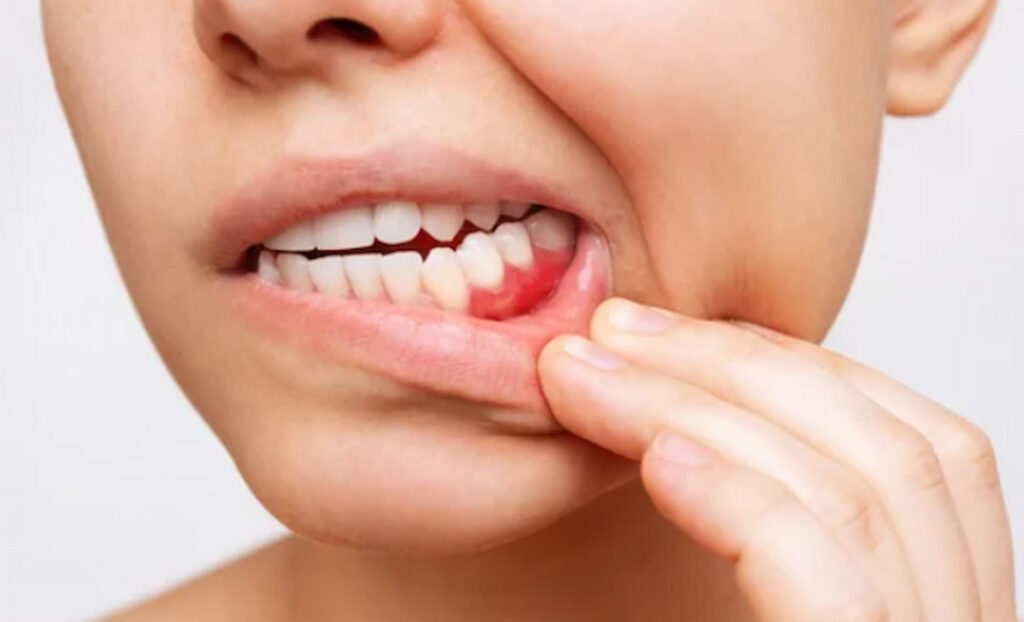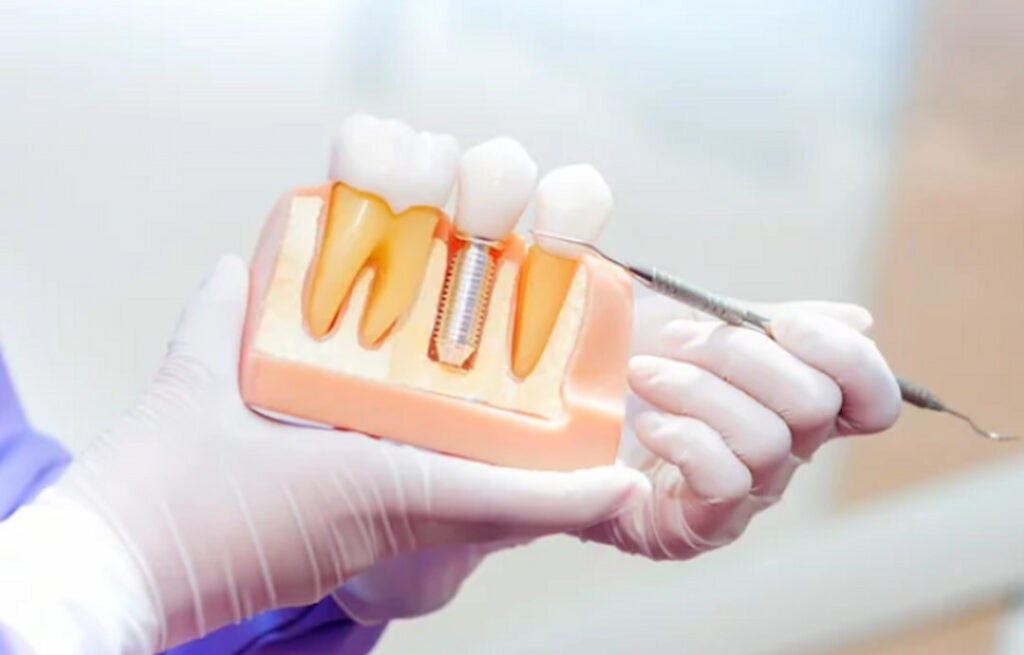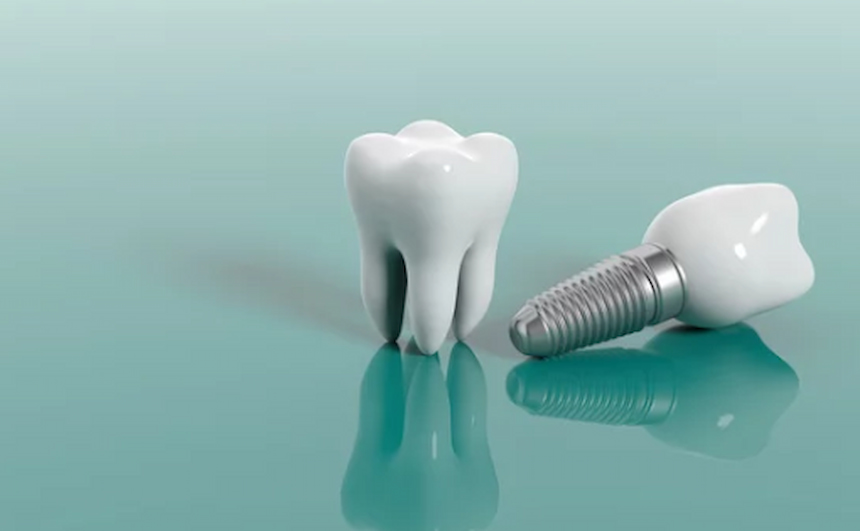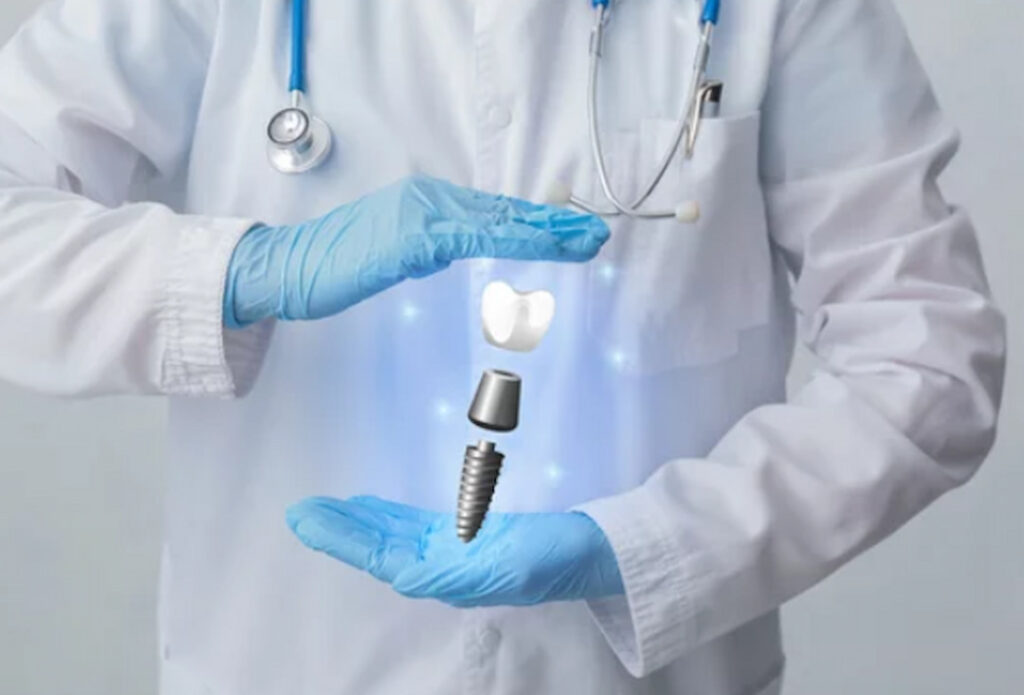
If you have received or are receiving dental implants, you might be wondering if there’s a chance of them failing or causing you issues in the future. The good news is that most dental implants do not fail and most people do not experience issues with their dental implants.
Most of the reasons why people experience dental implant failures can also be avoided by making it easy for you to ensure that your implants do not fail. Your dentist should cover all the potential problems you could have and then be able to advise you and give you tips on how to make sure your implants are successful.
Here are the top reasons why dental implants fail and how you can prevent them from happening.
How Do I Know If my Implants are Failing?
There are many things to look out for after getting dental implants to make sure they are not failing. Here are some of the symptoms you might experience:
- Severe pain or discomfort
- Inflammation or swelling of the gums
- You can feel the implant becoming loose or moving
Keep in mind that a dental implant should not feel like a foreign part of your mouth. It shouldn’t be noticeable to you or to other people. If you suddenly start to feel like there is something foreign in your mouth, this could be a sign that the implant is failing or becoming loose.

Reasons for Dental Implant Failure
Wondering why your dental implant failed? One of the below reasons is most likely why:
Misalignment of the Implant
One of the hardest parts of dental alignment is that the dentist has to put the implant in so that it’s fully surrounded by bone. Sometimes the bone placement is not the best when it comes to implanting the teeth. This means the implant will not be aligned perfectly.
This can make the dental crowns look unnatural. You might also notice your gums receding and see the metal of the implant around the gum.
This is one of the hardest issues to fix. You will need to see the dentist as soon as possible to ensure that they can redo the implants and fix the misalignment.
If not correct, the removal process can damage the bone and the teeth around the implant. It’s important to choose a dentist that is very experienced in implants so this is less likely to happen.
Improper Taken Impressions
Before doing dental implants, a dentist will always take impressions and then send them to a lab so that crowns can be made. If the impressions are not correct, the replacement teeth will not fit into your mouth well.
Even if the impressions are just taken slightly poorly, this can happen. When the replacement teeth do not fit into your mouth well, bacteria can easily get into the gums and cause infections.
Infections can usually be treated with simple antibiotics, but the implant may need to be removed and replaced. This can cause you to have to pay for brand new implants which can be very hard on your finances.
Cement is also used to bind the dental implant to the crown. If the cement leaks into the implant it can result in infection.

Infections
Any type of infection such as the ones mentioned above can cause the implants to fail. One of the more serious infections is peri-implantitis. This happens when the body detects something foreign in the oral cavity and tries to reject it.
It can cause inflammation. It usually happens shortly after the procedure because there is an overgrowth of bacteria in the mouth. Peri-implantitis can damage the gum and the bone that surrounds the implant.
This can eventually lead to bone loss and make it very hard to get future dental implants. The bacteria in the mouth can be treated but you will need new implants. You are more likely to get an infection if you are diabetic or smoke.
If you have poor oral hygiene, you will also be more likely to get infections after the implantation.
Failed Osseointegration
Osseointegration is when the bone integrates with the titanium that is part of the implant. This link is very important and usually takes a few weeks or months to happen. In some cases, your jawbone might not fully link with the implant. This can cause it to become loose or fall out.
The main reason this happens is that the person does not have enough bone for the implant to fully insert itself. Before agreeing to make implants, your dentist should always check your bone density and the overall health of your jawbone.
If you do not have sufficient bone mass, you might not be able to get implants. The dentist might do a bone graft or a sinus lift to make the bone stronger so you can still receive implants.

Nerve Damage
Nerve damage from a dental implant is rare, but it’s still possible. It happens when the implant is fixed too close to the nerves around the mouth. This is more likely to happen if your dentist is inexperienced or when they do not evaluate your mouth properly beforehand.
Dentists also need to do a thorough treatment plan before they do any kind of implant so that they can see where your nerves are. This will help them know exactly where to put the implant.
You might be experiencing nerve damage if you experience numbness, lingering pain, or tingling around your tongue, cheek, lips, and gums.
Failure of the Implant Itself
Sometimes the implant can become loose even when there are no other obvious problems. This happens when the metal becomes loose and falls out. It’s more likely to happen when inferior materials are used. Some low-cost clinics or clinics overseas use lower-cost materials that are less likely to attach to the bone and hold into place.
Always ask your dentist what kind of material they are using to make sure it will not compromise the stability of the implant.
Allergic Reactions
Anytime you have something foreign placed into your mouth there is a chance for an allergic reaction or an implant rejection from the body. Having a dental implant inserted can cause reactions in some people although it’s uncommon.
The dentist should always check with you if you have any allergies to make sure nothing that’s being inserted into the body will bother you.

What Should I Do If My Dental Implants are Failing?
The first thing you need to do is contact the dentist that did the implant. Describe your symptoms to the doctor and ask them what your next steps should be. They will probably ask you to come in so they can do an inspection.
If you have an infection and need antibiotics, make sure to take them even when you start feeling better. If an infection is caught early, you might not need to have the implant removed and redone which can save you time and money.
If there is an issue with the bone, the dentist might need to remove it and do a bone graft. If the implant is done correctly, it will also need to be removed.
If the dentist did a poor job of placing the implant, you might also want to consider going to a new dentist to fix the problem.
Final Thoughts
Getting dental implants can be nerve-wracking especially if you have a fear of dentists or oral procedures. Choosing the right dentist though can save you from complications and needing to spend further money.
There are many reasons for dental implant failure. Most of them involve an issue with the bone or with the device itself. Infections can also cause the implant to fail. Make sure to look out for warning signs and symptoms and head to the dentist as soon as possible.

